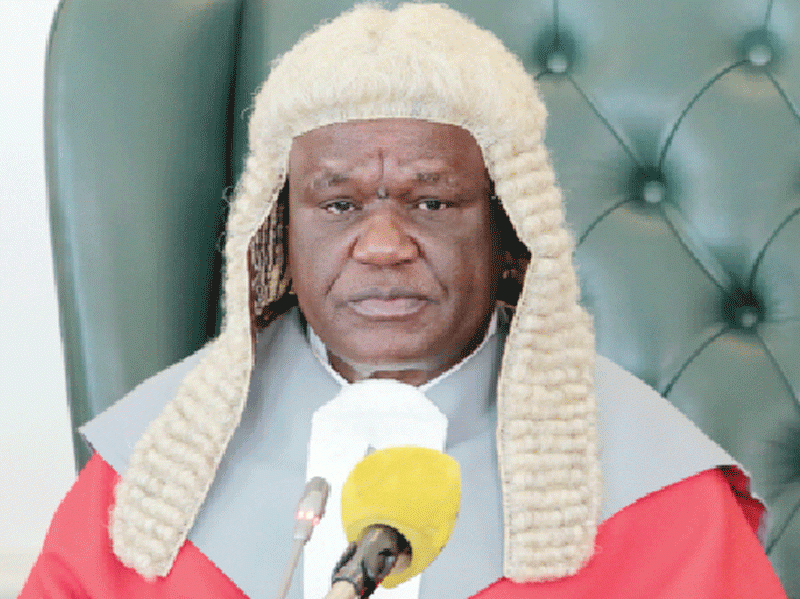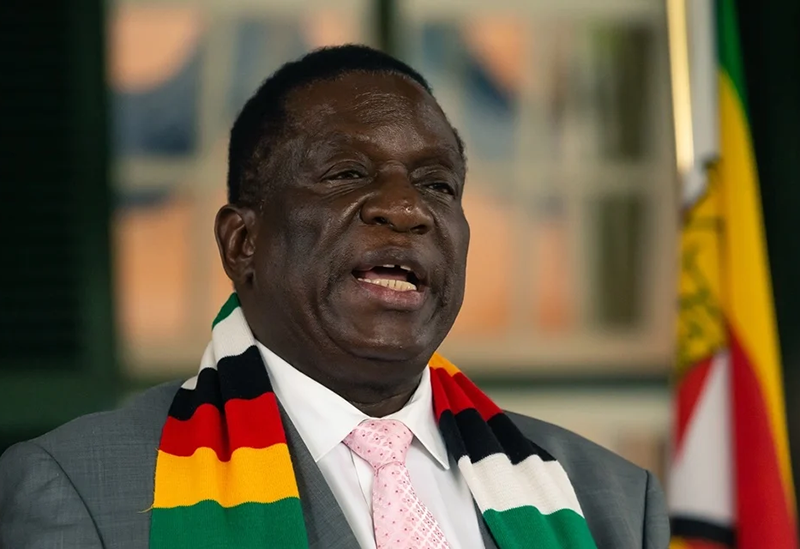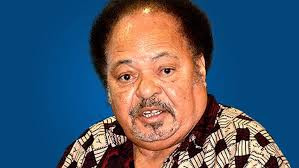
This is an introductory article preceding the serialisation of the Constitution Hill Global Guidelines on the Eligibility and Selection Criteria for the Appointment of Apex Court Judges, which were officially launched on Monday, September16, 2024.
The serialisation of these global guidelines is being undertaken as a build up towards the “Law Summit” which has been convened by the Institute for Integrated Transitions [IFIT] in conjunction with its Zimbabwe Resources Group [ZRG] in Harare on Thursday, 29 May, 2025.
The Honourable Mr Justice Luke Malaba, the Chief Justice of Zimbabwe, will be requested to pen the concluding article for the series that will be published on the eve of the colloquium which will be attended by eminent jurists, retired judges, sitting local judges, academic lawyers, practising legal practitioners and other prominent personalities drawn from Southern and Eastern Africa.
These guidelines are divided into four sections:
#The structural role and characteristics of Apex Courts;
#The appointment criteria for Apex Courts;
#The appointment procedures for Apex Courts;
#The conditions of service and tenure for the Apex Courts.
- Open letter to President Mnangagwa
- Feature: ‘It’s worse right now than under Mugabe’: Sikhala pays the price of opposition in solitary cell
- Masvingo turns down fire tender deal
- Human-wildlife conflict drive African wild dogs to extinction
Keep Reading
In these global guidelines, the Apex Court is defined as the supreme judicial authority on constitutional law questions in a given country. These global guidelines are drawn from key sources including, inter alia:
#IFIT’s detailed study of existing international, continental and regional principles on not only judicial appointments but also judicial independence;
#A comprehensive survey of national standards;
#In-depth interviews which were conducted with high-level panel members as well as eminent judges and jurists globally;
#Early work that was done in the Southern Africa region, particularly in Zimbabwe whence the project originated with the support of the IFIT’s ZRG.
It would be remiss of me not to acknowledge the pivotal role played by IFIT in the production of these global guidelines.
IFIT is a leading international non-governmental organisation that was founded by Mark Freeman in June 2012 as a peace building innovator. IFIT is supported financially by a wide range of governments, foundations and individuals.
Sujit Choudhry, a member of IFIT’s International Advisory Council and founder of the Constitutional Transitions, served with Mark Freeman as the co-conveners of the initiative on Apex Court appointments for the entire duration of the project from 2021 to 2024.
Alejandro Urrutia, an IFIT associate, served as the Project Leader and was ably assisted by Colleen Gwazani, the erstwhile local co-ordinator of the IFIT/ZRG programmes in Zimbabwe.
The project on these global guidelines received immeasurable input from a high-level advisory panel comprising, inter alia:
*The Honourable Justice Digkang Ernest Moseneke, the former Deputy Chief Justice and South Africa;
*The Honourable Justice Catherine (Kate) O’Regan, the former judge of the Constitutional Court of South Africa;
*The now late Sternford Moyo, who did respective stints, with distinction, as the president of The Law Society of Zimbabwe; the Sadc Lawyers’ Association and the revered International Bar Association (IBA).
Mark Freeman served as the principal author of these global guidelines but many others contributed significantly to the overall drafting and revision process including those individuals mentioned in the preceding paragraph of this article as well as:
*The former Cabinet minister and Senator David Coltart — a senior legal practitioner and inaugural member of IFIT’s ZRG and current mayor of Bulawayo;
*Honourable Justice Moses Hungwe Chinhengo — a retired judge of the High Courts of Zimbabwe and Botswana and also a current judge of the Court of Appeal in Lesotho;
*Beatrice Tele Mtetwa — an internationally acclaimed human rights lawyer who did successful stints respectively as the president of The Law Society of Zimbabwe as well as chairperson of the Zimbabwe Lawyers for Human Rights [ZLHR];
*Musa Kika — a leading constitutional lawyer in Zimbabwe and a former member of IFIT’s ZRG. He is currently employed as the executive director of the Institute for Human Rights and Development in Africa [IHRDA] in The Gambia;
*Simba Herbert Stanley Makoni — a commercial farmer and senior member of IFIT’s ZRG. He did respective stints as executive secretary of Sadc as well as Zimbabwe’s minister of Finance and Economic Development in the administration of the now late president Robert Gabriel Mugabe;
*Abraham Mateta — a former member of IFIT’s ZRG. He is currently serving as a human rights and advocacy officer at the African Union of the Blind in Nairobi, Kenya. He proudly and colourfully describes himself as “a legal practitioner by profession and a disability rights activist and consultant by calling”;
*Muchadeyi Ashton Masunda — a senior legal practitioner and senior member of the IFIT’s ZRG. He is also an international commercial and sports arbitrator and the former mayor of Harare.
In September 2023, an IFIT tag team consisting of Choudhry, Masunda and Chris Oxtoby [a Cape Town-based attorney and independent legal consultant who is a senior research officer for the Democratic Governance and Rights Unit in the Department of Public Law at the University of Cape Town] did a presentation of these global guidelines at the Sadc Lawyers’ Annual Conference that was held in Luanda, Angola.
The presentation was so well received by the 500 strong delegates that there are standing invitations for in-depth presentations in various Sadc member countries, namely Angola, Botswana, eSwatini, Lesotho, Malawi, Mozambique, Namibia, Tanzania, the Democratic Republic of Congo and Zambia.
It goes without saying that strong and independent judiciaries in each of the Sadc member countries would go quite a long way towards making this economic bloc an even more desirable destination for potentially lucrative and sustainable investment as this sub-continent of Africa is already endowed with not only intellectual capital and comparatively high literacy rates but also an abundance of natural resources such as mineral wealth, wildlife and unique resorts for tourists.
Muchadeyi Masunda. Feedback: mamasunda@gmail.com









